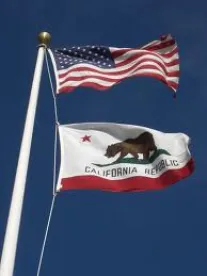With little forewarning to the regulated community, the California Division of Occupational Safety and Health (“Cal/OSHA”) passed a sweeping new standard requiring employers in the state to implement prescribed COVID-19 protections. On November 19, Cal/OSHA voted unanimously to pass the “Emergency COVID-19 Prevention Regulations” (the “Standard”) and on November 30, the Standard went into effect. As covered in our previous updates, the Standard obligates employers to, among other things, write and implement a COVID-19 Prevention Program, engage in contact tracing following any positive case that involved potential workplace exposure, require physical distancing and mask wearing and improve ventilation, and to report all “outbreaks” to the public health department.
Now, employers’ groups are fighting back. On December 17, the National Retail Federation (“NRF”), National Federation of Independent Business (“NFIB”), and three California employers (collectively, “Plaintiffs”) filed suit against Cal/OSHA. In their 37-page complaint, Plaintiffs lay out what they call California employers’ “rigorous and science-driven safety measures” to help slow the spread of COVID-19 and bring four causes of action challenging the Standard.
First, Plaintiffs allege Cal/OSHA violated the California Administrative Procedure Act by enacting the Standard without the required notice and comment. According to the complaint, Cal/OSHA “adopted the emergency regulations based on an improper and fatally flawed finding of emergency” that failed to meet the APA’s requirements, and so notice and public comment should have been allowed.
Second, Plaintiffs allege Cal/OSHA violated the California Occupational Safety and Health Act by exceeding its authority to regulate wages or sick leave, overstepping its jurisdiction as outlined in the Act. Cal/OSHA’s “jurisdiction, while broad, has limits,” the complaint argues. The Standard’s requirements that an employer pay for COVID-19 testing and provide paid leave exceeds that jurisdiction, according to Plaintiffs.
Third, Plaintiffs allege Cal/OSHA violated the Due Process Clause of the Fourteenth Amendment of the U.S. Constitution. Cal/OSHA improperly adopted the Standard “on an emergency basis instead of through the normal rulemaking process” and in doing so, “deprived Plaintiffs due process of law and denied them any meaningful opportunity to respond to the proposed regulations and explain how and why they are so deeply flawed.” And, because the Standard “can create an obligation for employers, including small business employers…to provide ruinous mandatory paid exclusion periods that amount to unlimited paid leave,” it “expose[s] employers to unanticipated and unjust outcomes that significantly infringe upon their property rights.” “Worst still,” the complaint continues, the Standard’s “scientifically unsupported mandatory exclusion requirements can severely cripple or entirely shut down a business based on as few as three COVID-19 infections that can occur entirely outside of the workplace over a 14-day period.” These effects “can only be described as arbitrary and capricious.”
Finally, Plaintiffs allege Cal/OSHA violated California’s Constitution and its guarantee of protection of property: “By requiring Plaintiffs to exclude employees from the workplace for potentially unlimited periods of time and to pay the potentially ruinous costs associated with these exclusions despite Plaintiffs’ effective compliance with measures being taken to serve the public health interest,” the Standard deprives “Plaintiffs of their property without just compensation or due process.”
Plaintiffs are seeking a declaratory judgment finding the Standard null and void, and injunctive relief preventing Cal/OSHA from enforcing or implementing the Standard. If granted, temporary injunctive relief could immediately relieve California employers from the strict obligations imposed by the Standard.
Once Cal/OSHA is served with the complaint, they will have 30 days to answer or file a responsive pleading. We will continue to monitor this and any other challenges to the Standard and to provide updates.





 />i
/>i
